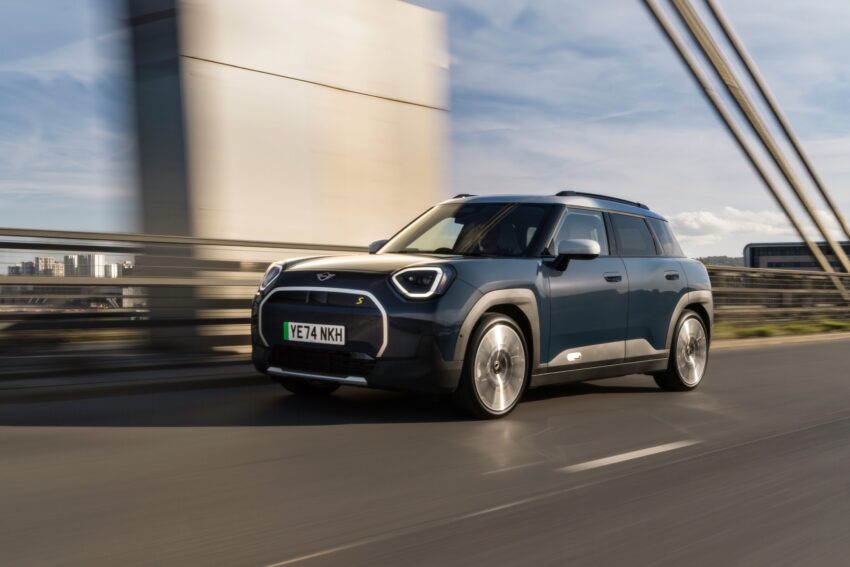
Mini cuts EV prices by up to £9,000
Mini has quietly slashed thousands of pounds from the price of its three electric models.
As car makers continue to adjust their EV prices to stimulate private interest, Mini has reduced the entry price of its Aceman crossover by £2,800, the Cooper E hatchback by more than £3,000 and the larger Countryman SUV by more than £9,000.
The cuts mean the Cooper E now starts at £26,895, making it among the cheapest EVs on the UK market. The new pricing puts the entry-level Cooper E, with its 181bhp motor and 185-mile 36.6kWh battery, in competition with the likes of the BYD Dolphin, Vauxhall Corsa and MG4. The Fiat 500e is still cheaper, but offers less range and space.
The more powerful, longer-range Cooper SE now starts at £29,995, making it cheaper than the previous starting point of the entire range.
The dramatic reduction for the Countryman means the family SUV now starts at £33,005, rather than the previous £42,200. That’s for the Countryman C in ‘Classic’ trim with the entry-level 168bhp motor and up to 286bhp from its 64.4kWh battery. The rest of the range has also seen a price drop, with the Countryman S All4 starting at £39,005 and bringing a 309bhp all-wheel-drive powertrain.
The Aceman, which sits between the Cooper and Countryman, now starts at £28,995 for the Aceman E Classic. Its reduction comes even before the first customer deliveries have taken place and means the Aceman now undercuts rivals such as the Smart #1 Volvo EX30 and Kia EV3. Like the Cooper and Countryman, prices have been reduced across the range, so the more powerful Aceman SE starts at £31,905 and the range-topping John Cooper Works Aceman costs from £36,905.
Mini is far from the only brand to be reducing its prices. Fiat/Abarth, Citroen and Volkswagen have also made similar changes in recent months as they try to attract more buyers.
While EV sales continue to buck the market and grow, car makers are worried they will still fall short of the targets set out in the ZEV mandate. By the end of 2025, 28% of all new car sales must be zero emission. In February EVs accounted for 25% of the market.